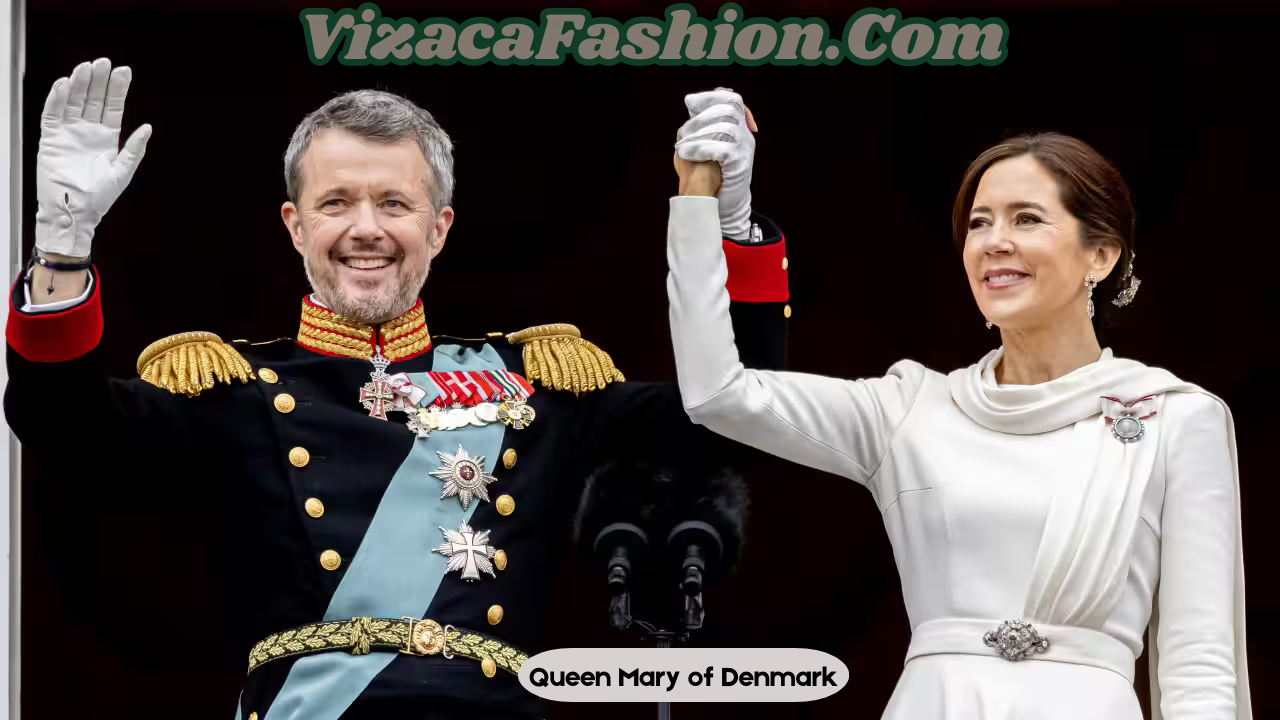Early Life and Education
Mary, Crown Princess of Denmark, was born Mary Elizabeth Donaldson on February 5, 1972, in Hobart, Tasmania, Australia. Her parents, John Dalgleish Donaldson and Henrietta Clark Donaldson, provided a nurturing environment that emphasized education, culture, and integrity. Mary’s early years were marked by her academic achievements, particularly her studies in commerce and law at the University of Tasmania. These disciplines laid the foundation for her analytical skills and ability to navigate complex challenges—qualities she would later bring to her role as a royal.
A Fairy Tale Love Story
Mary’s life changed forever during the 2000 Summer Olympics in Sydney, where she met Crown Prince Frederik of Denmark in a chance encounter at a local pub. Despite their different backgrounds, the couple quickly formed a deep connection. Their relationship blossomed, and in May 2004, Mary Donaldson married Frederik in a grand ceremony at Copenhagen Cathedral. She officially became Crown Princess Mary of Denmark, marking the beginning of her journey into the Danish royal family.
Role as Crown Princess
As Crown Princess, Mary has embraced her duties with poise and dedication. She serves as a patron of numerous organizations and initiatives focused on health, education, and social welfare. Her work often highlights issues such as gender equality, mental health, and the well-being of children. Mary’s efforts to connect with people on a personal level have earned her widespread admiration both in Denmark and internationally.
One of her most notable achievements is the establishment of the Mary Foundation in 2007. This organization aims to combat social isolation and promote inclusivity through initiatives targeting bullying, domestic violence, and loneliness. The foundation reflects Mary’s commitment to creating a compassionate and equitable society.
Modernizing the Danish Monarchy
Queen Mary of Denmark has played a crucial role in modernizing the Danish monarchy. Her approachable demeanor and commitment to progressive causes resonate with younger generations, bridging the gap between tradition and contemporary values. By using her platform to address global challenges, she has redefined the role of a modern royal, demonstrating that royalty can be both relatable and influential.
Mary’s ability to balance her royal responsibilities with her family life has also contributed to her popularity. Together with Crown Prince Frederik, she is raising their four children—Prince Christian, Princess Isabella, and twins Prince Vincent and Princess Josephine—to embody the values of empathy, responsibility, and service.
Advocacy on the Global Stage
Beyond Denmark, Queen Mary has become an influential figure on the international stage. She frequently represents Denmark at United Nations conferences, humanitarian missions, and global forums. Her advocacy for sustainable development and women’s rights has positioned her as a key voice in addressing pressing global issues.
One of her most impactful roles has been as a member of the International Taskforce on Women, Peace, and Security. Mary has worked to ensure that women’s voices are included in peacebuilding efforts, emphasizing the importance of gender equality in achieving lasting peace.
Cultural Integration and Legacy
Mary’s journey from Tasmania to the Danish royal family required her to adapt to a new culture, language, and set of traditions. She embraced these challenges with determination, mastering the Danish language and immersing herself in the country’s history and customs. Her efforts to integrate seamlessly into Danish society have earned her the respect and affection of the Danish people.
As a role model, Queen Mary of Denmark inspires countless individuals with her grace, intelligence, and compassion. Her legacy is one of empowerment, showcasing how a modern royal can use their influence to effect positive change in the world.
A Vision for the Future
Queen Mary’s impact extends far beyond her royal title. She represents a vision of leadership rooted in empathy, innovation, and collaboration. Whether addressing issues of sustainability, mental health, or education, Mary’s approach emphasizes the power of collective action and community engagement.
As she continues to champion causes close to her heart, Queen Mary of Denmark remains a beacon of hope and progress in a rapidly changing world. Her unwavering commitment to service and her ability to connect with people from all walks of life ensure that her influence will be felt for generations to come.


